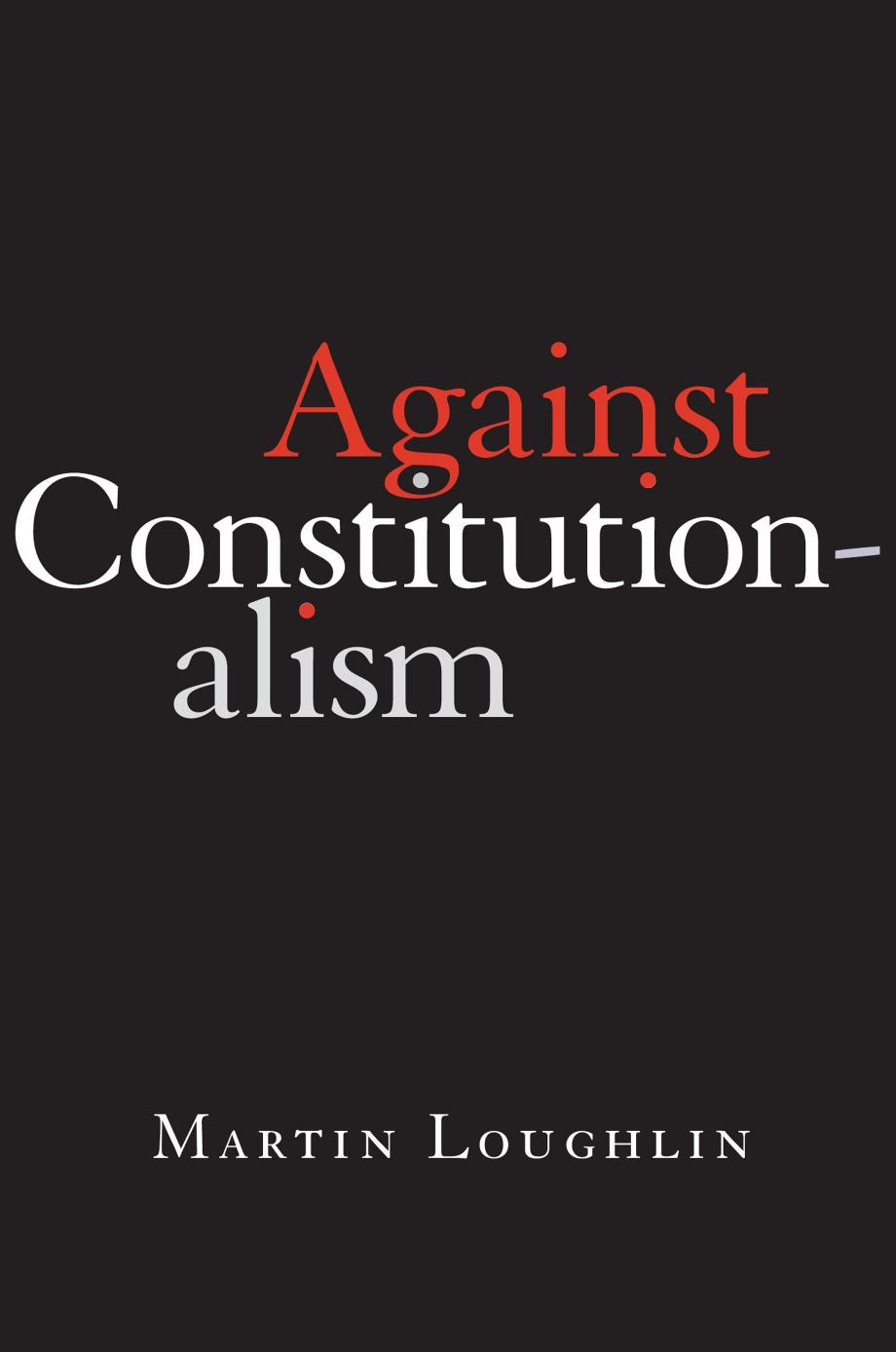Against Constitutionalism by Martin Loughlin

Author:Martin Loughlin [Loughlin, Martin]
Language: eng
Format: epub, pdf
Tags: Law, Public, Political Science, Constitutions, Philosophy, Political, Constitutional, Legal History
ISBN: 9780674276550
Google: QxtoEAAAQBAJ
Publisher: HarvardUP
Published: 2022-05-17T22:02:48+00:00
The Rights Revolution and Constitutional Democracy
Can the establishment of a superior constitutional jurisdiction in a democracy ever be justified? If the role of such a court is just to protect the primacy of the constitution as an expression of the constituent power of the people, the case would be unanswerable. As Hamilton recognized, constitutional review is essential because if legislation contrary to the constitution were valid, the deputy would be placed above the principal, the servant above the master, and the peopleâs representatives made superior to the people themselves. But recent developments indicate that the matter is not so straightforward.
The constitution, Laurence Tribe asserts, now âfloats in a vast and deepâand, crucially, invisibleâocean of ideas, propositions, recovered memories, and imagined experiences that the Constitution as a whole puts us in a position to glimpse.â36 Butâalso cruciallyâit is the judiciary and not âusâ who âglimpse.â To Bertolt Brechtâs question: âAll power comes from the people, but where does it go to?,â37 we are discovering a disconcerting answer. The constitutional role of the judiciary can no longer be comfortably placed within the classic scheme of the separation of powers. We have traveled a long way from Montesquieuâs assumption that, among the three powers, that of judging is null. Judges have become the arbiters of constitutional meaning. It is true that such power is subject to institutional constraints: courts have no independent power of initiative, they must restrict their decisions to the issue at hand, and they must conform to the conventions of rational argumentation. But judges now have the power to determine the conditions of âpolitical right,â and in so doing they have arrogated the critical role of overseeing the political process.
Their role in regulating democratic will-formation is particularly contentious. Issues that go to the core meaning of a constitutional democracy now occupy the attention of constitutional courts. The US Supreme Court has been in the vanguard of reshaping the law on such matters as campaign financing, political corruption, gerrymandering, and the redrawing of electoral districts.38 Where they lead, others are following. Constitutional courts are now ruling on a range of political disputes concerning restrictions on the activities of political parties, the tenure of presidents, corruption indictments against heads of state, and the determination of election results.39 The German Federal Constitutional Court, for example, has asserted its authority to determine when and under what conditions Germanyâs European Union membership is compatible with its constitutional commitments as a democracy.40 The South African Constitutional Court refused to certify the draft Constitution adopted by the Constitutional Assembly and required revisions to bolster the protection of rights, the first case of a constitution being declared unconstitutional.41 The influence of constitutional courts in shaping the transition to democracy in Central Europe, Latin America, and South Africa has been of pivotal significance.42
Review agencies are clearly necessary to ensure the smooth working of democratic will-formation.43 But whereas this was once the task of independent review commissions, it is increasingly performed by courts. The problem is that democracy is a
Download
This site does not store any files on its server. We only index and link to content provided by other sites. Please contact the content providers to delete copyright contents if any and email us, we'll remove relevant links or contents immediately.
2010-The City & the City by China Miéville(1990)
Anatomy of Injustice by Raymond Bonner(1664)
That Every Man Be Armed by Stephen P. Halbrook(1579)
ADHD on Trial by Michael Gordon(1574)
Injustices by Ian Millhiser(1497)
You Don't Own Me by Orly Lobel(1445)
Tell by Major Margaret Witt(1438)
Course Correction by Ginny Gilder(1409)
Broken Scales by Joel Cohen(1352)
Without Copyrights by Spoo Robert(1346)
A Vast Conspiracy by Jeffrey Toobin(1327)
First by Evan Thomas(1284)
J by Howard Jacobson(1256)
A Religious Orgy in Tennessee by H.L. Mencken(1251)
The Run of His Life: The People v. O. J. Simpson by Jeffrey Toobin(1214)
A Triumph of Genius: Edwin Land, Polaroid, and the Kodak Patent War by Ronald K. Fierstein(1203)
A History Of Thailand by Baker Chris(1190)
John Wayne Gacy by Judge Sam Amirante(1114)
Law 101: Everything You Need to Know About American Law, Fourth Edition by Jay Feinman(1101)
